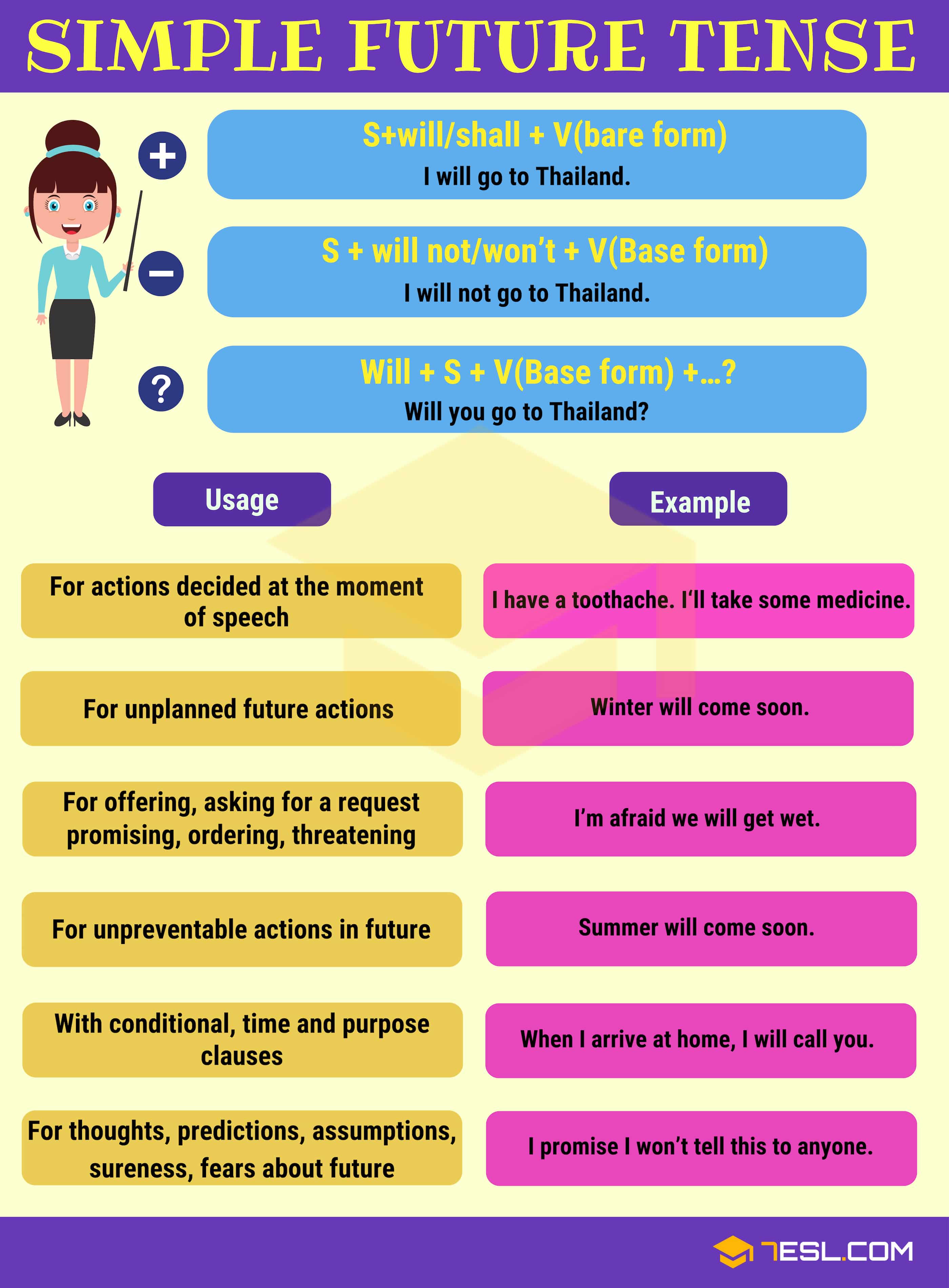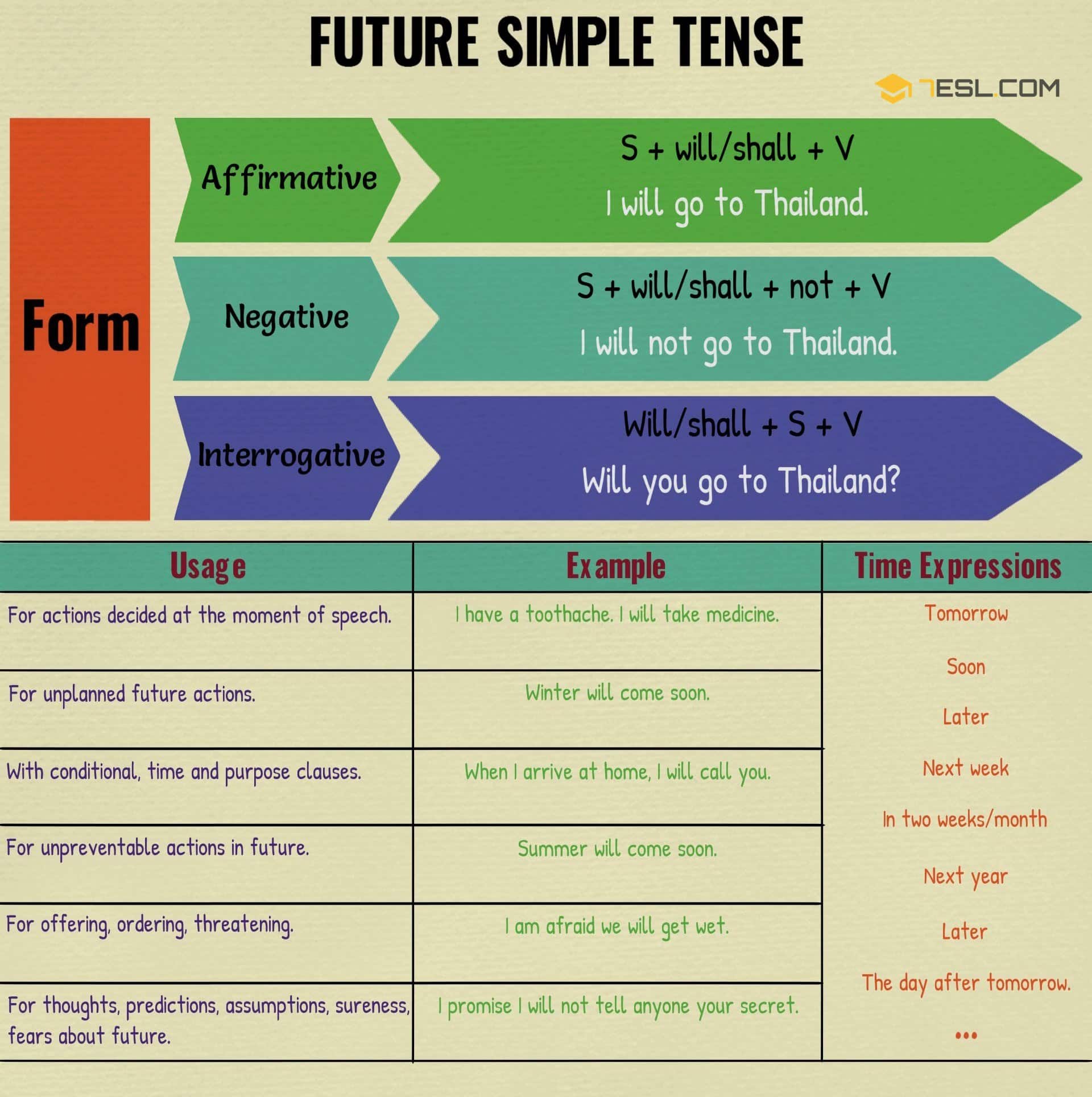Simple Future Tense
Some grammarians consider that there are only 2 tenses in the English language: present and past.
They do not consider future as a tense in English because of how the Future it is formed and structured in English.
Future is a combination of modals and verbs (will or going to future) and it is not a verb modification as in the cases of present and past tenses.
You can even use Simple Present to refer to the future in certain contexts with certain conditions: a pattern of frequency, a timetable, for example, means of transport.
The formula for the future simple is will + V(Base form).
Positive Sentence S + will + V(Base form) + object…
Example: I will go to Thailand.
Negative Sentence S + will not/won’t + V(Base form) + object…
Example: I will not go to Thailand.
Question form Will + S + V(Base form) +…?
Example: Will you go to Thailand?
How to Use the Simple Future Tense
The future simple tense is used:
For Actions Decided at the moment of speaking
Example: I have a toothache. I‘ll take a medicine.
For Predictions based on experience (not on concrete evidence)
Example: That restaurant will be crowded at Christmas (based on previous experience and what usually happens, not on concrete evidence)
For Unplanned Future Actions
Example: Winter will come soon.
For Offering, Asking for a Request Promising, Ordering, Threatening
Example: I’m afraid we will get wet.
For Unpreventable Actions in Future (general fact/truth)
Example: Summer will come soon.
With Conditional, Time and Purpose Clauses
Example: When I arrive at home, I will call you.
For Thoughts, Predictions, Assumptions, Sureness, Fears about Future
Example: I promise I won’t tell this anyone.
Simple Future Tense Chart | Picture

